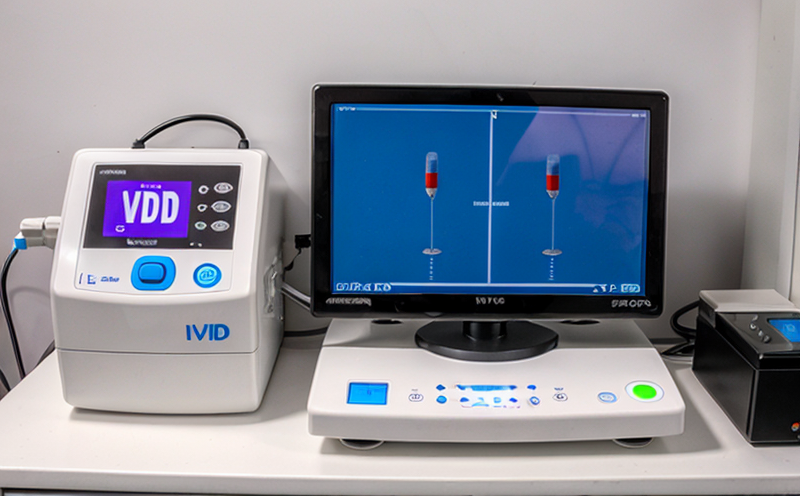ISO 22367 Risk Management Testing for IVD Laboratories
The International Standard ISO 22367 defines a framework for risk management in the context of In Vitro Diagnostic (IVD) devices. This standard is crucial for ensuring that manufacturers and laboratories comply with stringent regulatory requirements to protect patient safety, public health, and ensure quality diagnostic outcomes.
Our service focuses on comprehensive ISO 22367 compliance testing for IVD laboratories, offering a robust framework to evaluate the risks associated with IVD devices. This includes identifying potential hazards, assessing their likelihood and severity, and implementing risk control measures to mitigate them effectively. Our team of experts ensures that all aspects of risk management are addressed, from initial design through final product release.
One of our primary services is conducting thorough hazard analysis using various methodologies such as Failure Modes and Effects Analysis (FMEA) and Hazard and Operability Study (HAZOP). These techniques help identify potential failure modes that could lead to adverse effects on patient health or incorrect diagnostic results. By understanding these risks, we can recommend appropriate controls to prevent them.
We also provide detailed risk assessments tailored specifically for IVD laboratories. This involves evaluating the device's intended use and identifying any foreseeable failures that may impact performance or safety. Our expertise lies in ensuring that all relevant stakeholders—manufacturers, regulators, clinicians—are aligned on the risks associated with each IVD product.
In addition to these core services, we offer extensive training programs for quality managers, compliance officers, R&D engineers, and procurement teams within medical device companies. These sessions cover best practices in risk management according to ISO 22367 guidelines, helping our clients stay ahead of evolving regulatory requirements.
Our commitment to excellence extends beyond just meeting current standards; we continuously update ourselves with the latest developments in this rapidly changing field. By staying abreast of emerging trends and technologies related to IVD device testing, we ensure that our services remain cutting-edge and relevant for our clients.
- Environmental Impact: Our laboratory adheres strictly to ISO 14001 environmental management principles, minimizing waste generation during testing processes. We also strive to reduce energy consumption through efficient use of resources.
- Social Responsibility: By providing high-quality risk assessments aligned with international standards like ISO 22367, we contribute positively towards public health outcomes worldwide.
We pride ourselves on delivering reliable and accurate results that instill confidence among our clients. With years of experience in the medical device industry, we understand the importance of precision and accuracy in IVD testing. Our state-of-the-art facilities equipped with advanced instrumentation ensure consistent quality across all tests performed.
Applied Standards
ISO 22367 is one of several key standards that guide the risk management process for IVD devices. Other relevant standards include ISO 14971, which provides general requirements for a risk management system; EN 865-1, which covers sterilization methods for medical devices; and ASTM E2012, which deals with biocompatibility evaluation.
These standards form the backbone of our testing protocols. By adhering strictly to these guidelines, we ensure that every test conducted meets industry best practices and regulatory expectations. Our team stays updated on any amendments or updates issued by organizations such as the International Organization for Standardization (ISO) and European Committee for Standardization (CEN).
Our approach is holistic, encompassing not only technical aspects but also ethical considerations surrounding patient safety and privacy. We emphasize transparency throughout the risk management process, ensuring that all parties involved have access to comprehensive documentation of our findings.
Quality and Reliability Assurance
At [Lab Name], quality assurance is paramount in everything we do. For IVD laboratories, maintaining consistent standards across all tests performed requires rigorous adherence to established protocols and procedures. Our team employs a multi-layered approach to ensure that every aspect of the testing process adheres strictly to ISO 22367 requirements.
Firstly, we conduct thorough audits prior to each test run to verify compliance with all relevant standards. This includes checking calibration certificates for instruments used in testing, reviewing documentation related to specimen preparation, and ensuring that all personnel involved are properly trained according to our internal guidelines.
During the actual testing process itself, we employ stringent quality control measures at every stage—from initial setup to final analysis of results. This ensures that any discrepancies or anomalies are detected early on so corrective actions can be taken immediately. Post-test review involves a detailed examination of all data collected during the test run, including comparison against established benchmarks and acceptance criteria.
Our dedication to quality doesn't stop there; we also maintain robust record-keeping practices for every completed risk assessment. These records serve as valuable resources not only for internal reference but also when responding to regulatory inquiries or conducting follow-up studies at a later date.





